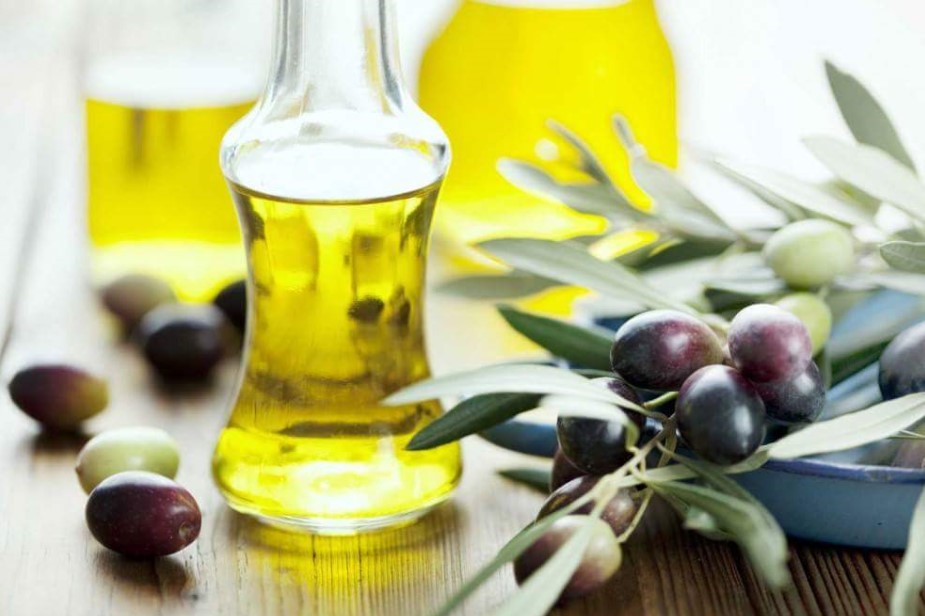Consuming olive oil in moderation, in a low calorie diet, can help reduce weight
According to new evaluation by Nutrimedia, a project of the Science Communication Observatory of the Department of Communication at UPF, directed by Gonzalo Casino, in collaboration with the Iberoamerican Cochrane Center and with the support of the Spanish Foundation for Science and Technology.

A new evaluation by Nutrimedia concludes that olive oil is the best choice, out of all fats and oils, for inclusion in a low calorie diet. According to this analysis, olive oil can reduce weight, though the effect observed is small and may not be clinically significant. This evaluation was carried out on the basis of a question posed by the public to Nutrimedia, a project of the science Communication Observatory (OCC) at the Department of Communication at UPF in collaboration with the Iberoamerican Cochrane Center, with the support of the Spanish Foundation for Science and Technology (FECYT), which scientifically analyses the degree of veracity of some messages about food and health, while helping to interpret the results of research.
Olive oil is the basic fat of the Mediterranean diet
Olive oil is one of the most characteristic ingredients in the Mediterranean diet and its main source of fat. Since the mid-twentieth century, the Mediterranean diet has been the subject of great scientific interest. Numerous observational studies and clinical trials have associated it with several health benefits, including reducing the risk of cardiovascular disease and cancer. Some studies also suggest that consumers of olive oil have a lower incidence of overweight and obesity, although it is difficult to determine whether this effect is due to the Mediterranean diet or to the olive oil alone. However, there are doubts among the population as to whether the daily consumption of olive oil is compatible with weight reduction and whether it is the best choice for inclusion in a slimming diet.
Of all fats and oils, olive oil is the best choice for inclusion in a slimming diet
“The scientific evidence analysed shows that it is likely that the consumption of olive oil, compared with the consumption of other oils or fats, reduces weight”, states Darío López Gallegos, author of the evaluation report and physician at the Catalan Government’s Costa de Ponent Primary Healthcare Directorate. The evaluation mainly took into account a systematic review of 11 clinical trials published in 2018. These trials compared the effect on weight of diets with olive oil or extra virgin olive oil compared to other diets that include other types of fats, such as palm oil, corn oil, soybean and rapeseed oil, among others. Some of these studies showed several methodological limitations, so the veracity of their results cannot be considered as being high (as it is in principle in clinical trials) but rather moderate. This leads to the conclusion that olive oil probably reduces weight, but new trials might give rise to slightly different results.
The effect on weight reduction is small and may not be clinically significant
“Only in five of the 11 studies analysed were participants exposed to a diet with extra virgin olive oil, assuming that refined oils may not have all the properties of extra virgin olive oil and, therefore, their effects could be different”, the researcher remarks, who then adds: “Most of the trials were followed up over less than a year, so data are missing in order to clarify whether this effect on weight will remain in time”. These trials also showed a beneficial effect of olive oil on abdominal circumference and body mass index, but the degree of certainty of these results is low and very low, respectively, so the uncertainty is greater.
Olive oil in a healthy diet
Olive oil is high in monounsaturated fats, especially oleic acid, and to a lesser degree, polyunsaturated fats. It also contains other interesting components for the health such as phytosterols, tocopherols and polyphenols; the latter are not so present in one or another type of oil (for example, extra virgin olive oil contains four times as much as olive oil, made from refined and virgin oils).
Key national and international organizations agree that the consumption of olive oil is one of the main sources of unsaturated fats, which must be present in a healthy diet. Thus, the WHO recommends that the calories contributed by fat to the diet should not account for more than 30% and recommends reducing saturated fats and especially trans saturated fats for the benefit of unsaturated ones. The European Food Safety Authority (EFSA) supports the consumption of olive oil in moderate amounts in the context of a balanced diet. In our environment, the Spanish Society of Community Nutrition (SENC) recommends the daily consumption of extra virgin olive oil as the main source of added fat. Meanwhile, the guide Small changes to eat better, published by the Public Health Agency of Catalonia, recommends olive oil as the usual source of fat, both for cooking and for dressing, and advises using other oils and fats only occasionally.
The Mediterranean diet is characterized by a high consumption of fruit, vegetables, legumes, nuts, cereals and olive oil; moderate consumption of fish and dairy products, and low consumption of processed foods and meat, especially red and processed meat. In this regard, Abel Mariné, emeritus professor of Nutrition and Food Science of the University of Barcelona, said in a recent interview for the “Eat with science” section of Nutrimedia that “in nutrition it is very important that oils should predominate over solid fats”, and he added that “olive oil is the basic fat in the Mediterranean diet”, besides being the best choice for reasons of health and sustainability.
Evaluation: https://tinyurl.com/yyoab9xq
Complete technical report: https://tinyurl.com/y4kq4ms9
Interview with Abel Mariné for Nutrimedia:
(21-3-2019), Abel Mariné: "En la alimentación es importante que predominen los aceites sobre las grasas sólidas"
